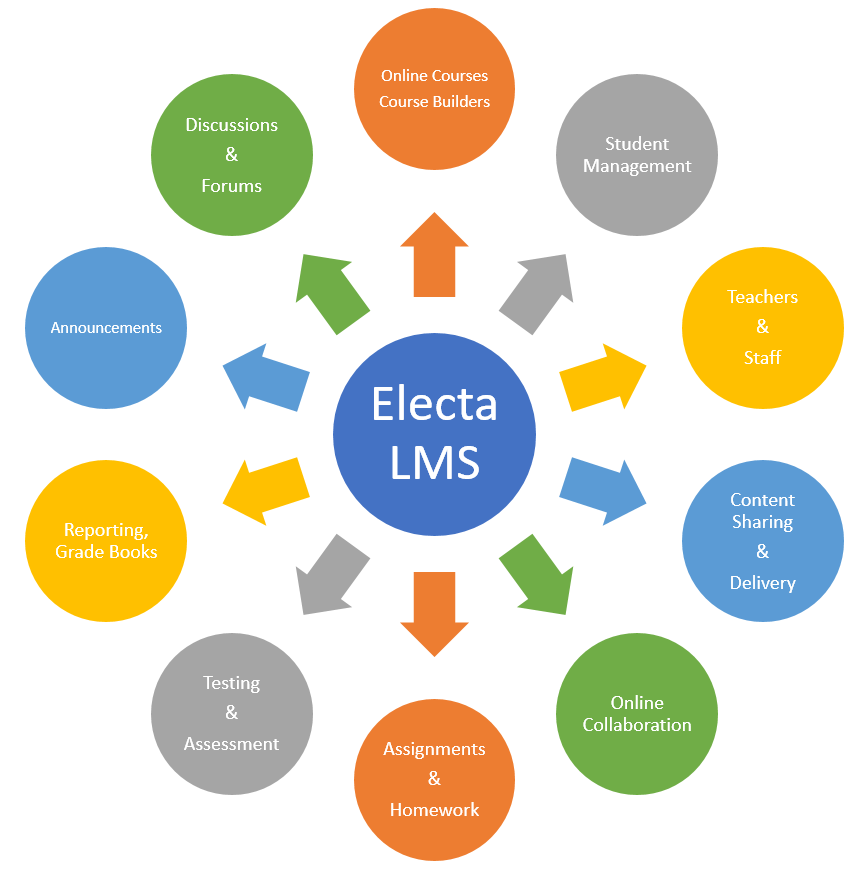Selecting the Finest Discovering Monitoring System for Your Company
Picking the optimum Understanding Monitoring System (LMS) for your company is a multifaceted decision that calls for mindful consideration of various components. From specifying exact discovering objectives that reverberate with your calculated vision to assessing individual experience, each element plays a pivotal duty in the general effectiveness of the system. In addition, comprehending assimilation abilities and guaranteeing scalability for future demands can not be ignored. As companies pursue effectiveness and development, the choice of an LMS comes to be increasingly substantial. What are the vital considerations that can affect your decision-making procedure?
Define Your Learning Objectives
Specifying clear learning purposes is necessary for the successful execution of an Understanding Administration System (LMS) These purposes offer as a roadmap, directing the advancement of content, assessments, and overall training strategies within the LMS. By developing specific, measurable, attainable, appropriate, and time-bound (WISE) objectives, companies can make certain that the learning experiences are aligned with their calculated goals and student demands.
Reliable learning objectives ought to encapsulate what learners are expected to know or be able to do upon completion of a course or training program. This clarity not only help in web content production but additionally facilitates the evaluation of learner progression and the total performance of the LMS. LMS SG. Well-defined purposes allow stakeholders to assess whether the chosen LMS functions and performances straighten with their academic goals.
Assess Customer Experience
Once finding out goals have been developed, reviewing individual experience becomes an important following action in picking an ideal Knowing Monitoring System (LMS) Individual experience encompasses the total contentment and simplicity with which learners engage with the system. A well-designed LMS must help with instinctive navigation, guaranteeing that customers can find courses, products, and assistance effortlessly.
To evaluate customer experience, consider performing usability screening with a depictive sample of end-users. Key variables to evaluate include the LMS's interface layout, ease of access attributes, mobile compatibility, and the clearness of guidelines provided.
Furthermore, evaluate the availability of support sources, such as tutorials and aid centers, which can improve the customer experience. The responsiveness of customer support is likewise vital; timely assistance can dramatically mitigate aggravations that individuals might come across. Ultimately, picking an LMS that focuses on customer experience not just improves the finding out procedure yet also fosters greater involvement and satisfaction amongst students.

Evaluate Assimilation Capacities
Recognizing the significance of seamless capability, evaluating combination capacities is crucial when choosing a Knowing Management System (LMS) An effective LMS needs to promote interoperability with existing systems, such as Human Source Monitoring Solution (HRMS), Client Relationship Management (CRM) systems, and various other instructional devices. This combination improves data flow, reduces management worries, and makes certain a natural discovering atmosphere.
When evaluating an LMS, think about the types of integrations supplied. Try To Find Application Programs Interfaces (APIs), Solitary Sign-On (SSO) abilities, and pre-built connectors that improve integration processes. Furthermore, validate the LMS's capacity to integrate with third-party tools, such as content libraries or assessment systems, which can considerably improve the learning experience.

Think About Scalability and Versatility
As organizations evolve, the ability of a Learning Management System (LMS) to scale and adapt ends up being significantly vital. A scalable LMS can fit growth in user numbers, course offerings, and material without jeopardizing efficiency or individual experience. As organizations expand, whether with enhanced employees, new locations, or diversified training needs, the LMS must perfectly expand together with these adjustments.
Adaptability is just as necessary; a reliable LMS has to sustain various discovering methods, such as online, blended, and mobile knowing. This flexibility allows organizations to respond swiftly to arising trends in training and development, making sure that they can supply interesting and relevant learning experiences - LMS Singapore. Furthermore, linked here the system ought to offer adjustable attributes, enabling organizations to tailor the LMS to their particular requirements and branding
Additionally, a versatile LMS needs to incorporate conveniently with existing systems and devices, facilitating a cohesive learning ecosystem. Thus, when selecting an LMS, it is essential to evaluate not only its current capabilities but also its potential to adapt and grow in positioning with the company's calculated goals and progressing finding out demands. This foresight can considerably improve the long-term stability of the chosen LMS.
Review Expenses and Budgeting
When assessing a Knowing Management System (LMS), reviewing prices and budgeting is necessary to make certain that the financial investment straightens with the company's strategic purposes and monetary capabilities. Organizations needs to begin by identifying the complete cost of ownership, that includes licensing costs, application costs, upkeep, and any type of additional costs such as training and technical support.
It is important to contrast different LMS alternatives, as prices versions can vary significantly among suppliers. Some systems may supply a subscription-based model, while others might charge a single fee. Organizations should additionally think about the scalability of that site the LMS; as they grow, the expense framework may transform, influencing long-term budgeting.

Verdict
Selecting a proper Knowing Administration System (LMS) is essential for achieving organizational understanding objectives. An extensive examination of customer experience, assimilation capacities, scalability, and financial considerations guarantees that the selected LMS lines up with calculated objectives and student needs. By systematically attending to these variables, companies can enhance learning outcomes, help with seamless operations, and support future development. Ultimately, the best LMS offers as a critical device in fostering an efficient understanding atmosphere and driving organizational success.
Selecting the optimum Understanding Administration System (LMS) for your organization is a complex decision that requires mindful consideration of various components.Defining clear learning purposes is vital for the successful execution of a Discovering Management System (LMS)Once finding out objectives have actually been established, reviewing individual experience becomes a crucial next action in selecting a proper Knowing this contact form Monitoring System (LMS)As companies evolve, the capacity of a Knowing Monitoring System (LMS) to scale and adjust comes to be significantly important.Choosing an appropriate Discovering Monitoring System (LMS) is necessary for achieving organizational understanding objectives.